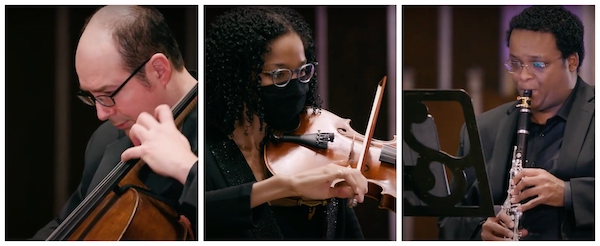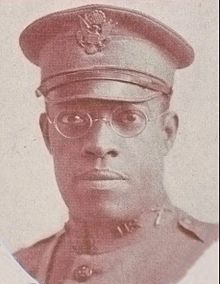by Jarrett Hoffman
CELEBRATING BLACK COMPOSERS:
In honor of Black History Month, The Cleveland Orchestra has shared the complete playlist from its January MLK Community Celebration. That included three new performances of solo and chamber music filmed for the occasion:
Coleridge-Taylor Perkinson’s Lamentations for cello (Mark Kosower),
Leslie Adams’ L’extase d’amour for viola (Eliesha Nelson) and piano (Dianna White-Gould),
Florence Price’s Adoration, originally for organ, arranged here for clarinet (Afendi Yusuf) and string quartet (violinists Stephen Rose and Jeanne Preucil Rose, violist Lynne Ramsey, and cellist Mark Kosower).
Kosower writes of the Perkinson work:
[It’s] a tremendous piece of music. It’s so interesting because Perkinson takes European Baroque counterpoint and combines it with American romanticism and the music of his African-American heritage, such as Black folk music, spirituals, and jazz. All of this is synthesized in this four movement work which, like the words of Dr. Martin Luther King, speaks to a much wider group of people of all nations, backgrounds, and cultures.
And on February 11, the Cleveland Chamber Choir commemorated the anniversary of the passing of composer and arranger Moses Hogan by sharing a performance of his Hear My Prayer. That composed spiritual — with both words and music by Hogan — was recorded by the Choir virtually in November.
Click that link to listen, and to read a tribute by musicologist Charles McGuire, who writes that Hogan was “one of the twentieth century’s most influential composers and arrangers, especially of spirituals.”
McGuire goes on to lay out the path of Hogan’s life and career — from his immersion in choral music during his childhood in New Orleans, to his initial desire to be a concert pianist (including in studies at Oberlin Conservatory), his founding of the New World Ensemble (later the Moses Hogan Chorale), and his rise in popularity to the point of becoming “the leading expert on spirituals and their arrangement.”
And speaking of Hogan, there’s one local event on the horizon to take note of. Oberlin will host a free panel discussion on Zoom on Wednesday, February 24 at 7:00 pm titled “Moses Hogan ’79 and the Evolution of the African American Choral Tradition.” It’s hosted by DaQuan Williams, creator of the Moses Hogan Sing-Along. Click here to read about the panelists, and here to register to attend.
Whether as additions to your playlists, programs, and music stands, or just to hear new interpretations of great music you already knew, have a listen to the four works featured above by Hogan, Perkinson, Adams, and Price.
TODAY’S ALMANAC:
Among the figures in music history to celebrate today is one who deserves a great deal more recognition than he gets. American composer, arranger and bandleader James Reese Europe was born on February 22, 1881 in Mobile, Alabama, and has been dubbed “the Martin Luther King of music” not only for his compositional and orchestrational innovations, but also for his leadership as a Black musician in New York City in the early 20th century.
That leadership included forming the Clef Club in 1910, an organization that housed its own orchestra and chorus, in addition to serving as a union and contracting agency for Black musicians. One famous performance by the Clef Club Symphony Orchestra came at Carnegie Hall in 1912: a highly successful program that featured exclusively Black composers and an enormous and unique ensemble. Its numbers totaled 125 musicians, and it combined traditional orchestral forces with banjos, mandolins, and guitars. [Read more…]





